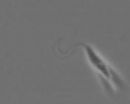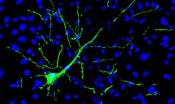(Press-News.org) Students do not mind buying healthier snacks from vending machines, according to research published in the International Journal of Food Safety, Nutrition and Public Health. The findings could have implications for campus health initiatives as well as vendor profits.
The common stereotype of the busy student is of someone who will grab a junk food snack between lectures and rarely chooses a decent, hot meal over a chance to share a beer or two with fellow students. If the stereotype is an obvious generalization, one point remains true, snacks from vending machines on campus are popular. Now, Julia Lapp, William Harris Ressler and Amy Frith of Ithaca College have carried out an experiment on two campus vending machines in which they swapped out "unhealthy", high sugar, salt and fat snacks for healthier options and then surveyed 200 students on their satisfaction and perceptions regarding the snacking options. No promotions or incentives were used to entice students to purchase the healthier options and the foods sold were not labeled as healthier.
The researchers point out that the environment and context in which consumers make dietary choices is important regarding perception of the foods being sold and the nutrition and related health risks. Moreover, vending machines snacks available on the premises of educational establishments and in the workplace have been the object of scrutiny and criticism by public health experts, with a particular concern regarding the high levels of sugar, salt, fat and overall calorie content of the foods.
The team's study compared college students' perceptions and self-reported behavior regarding the food in vending machines before (pre-test) and after (post-test) replacing a portion of the conventional food items with healthier foods, defined as having fewer calories (less than 400 kcal for snacks and cereals less than 150 kcal for candies), limited added sugar (less than 5 grams), lower fat (less than 3 g per serving), healthier fats, no trans fats, no artificial colors or flavors, and lower sodium (less than 140 milligrams per serving).
The key finding was that sales from the vending machines did not decline when healthier options were added. Moreover, students made aware of the healthier options were quite happy to have purchased those options and the more athletic among them felt it was a positive change. "Results offer insights for promoting healthier choices and suggest that improving the healthiness of vending machine selections can serve all stakeholders: consumers, companies, and institutions," the team reports.
The team's findings suggest that there are significant benefits to students in offering healthier snack options without compromising convenience or taste. For the educational institution or workplace, a healthier food offering boosts their social responsibility and supports institutional image as well as improving student or staff wellbeing. And, for the vending machine companies, healthier and more options translates into increased sales. "Results of our study suggest that introducing healthier choices to vending machines can indeed be a win-win-win proposition," the team concludes.
INFORMATION:
Lapp, J.L., Ressler, W.H. and Frith, A.L. (2014) 'College students, vending machines, and improving nutritional choices: the effects of adding healthier foods on perceptions of vending machines', Int. J. Food Safety, Nutrition and Public Health, Vol. 5, No. 1, pp.16-33.
Students cope well with healthier snacks
2014-08-04
ELSE PRESS RELEASES FROM THIS DATE:
Diabetes: A duo helps better
2014-08-04
Various active substances in oral antidiabetic agents are frequently combined in the treatment of diabetes in order to achieve an effective reduction in the blood sugar. A new, very promising approach combines the substances metformin and SGLT2 inhibitors, the latter were just approved in 2012. Scientists headed by Dr. Susanne Neschen and Prof. Dr. Martin Hrabě de Angelis from the Helmholtz Zentrum München, in cooperation with Ludwig-Maximilians-Universität München and drug manufacturer Sanofi Aventis, have discovered how the two substances reinforce each other.
Medicinal ...
Drilling in the dark: Biological impacts of fracking still largely unknown
2014-08-04
MADISON, Wis. – As production of shale gas soars, the industry's effects on nature and wildlife remain largely unexplored, according to a study by a group of conservation biologists published in Frontiers in Ecology and the Environment on August 1.
The report emphasizes the need to determine the environmental impact of chemical contamination from spills, well-casing failure, and other accidents.
"We know very little about how shale gas production is affecting plants and wildlife," says author Sara Souther, a conservation fellow in the Department of Botany at the ...
New insights into why adolescents carry meningitis-causing bacteria
2014-08-04
University of York scientists have shed new light on why teenagers and young adults are particularly susceptible to meningitis and septicaemia.
The team from the University's Department of Biology has discovered a novel metabolic pathway in the bacterium Neisseria meningitidis that may explain why this age group is particularly at risk of infection.
The results of the research, which was supported by the Centre for Chronic Diseases and Disorders (C2D2), are reported in the journal Molecular Microbiology.
N. meningitidis is a major cause of meningitis and septicaemia, ...
Researchers find potential new predictor of stress-related illnesses
2014-08-04
SAN ANTONIO (Aug. 2, 2014) ― Scientists studying depression in teens have discovered that subtle changes in a gene can predict how the brain reacts to stress, which can cause such health issues as depression, post-traumatic stress disorder and obesity.
The research, published Aug. 2 in the journal Nature, focuses on two longitudinal studies led by Douglas E. Williamson, Ph.D., from The University of Texas Health Science Center at San Antonio, and Ahmad Hariri, Ph.D., from Duke University. Scientists from Columbia University and the University of Pittsburgh are ...
Key adjustment enables parasite shape-shifting
2014-08-04
VIDEO:
Researchers show that suppressing expression of a key protein causes major changes in the shape of T. brucei (shown here), the parasite that causes African sleeping sickness.
Click here for more information.
Crafty parasites frequently undergo dramatic shape changes during their life cycles that enable them to adapt to different living conditions and thrive. But these transformations might not be as difficult as they appear, according to a study in The Journal of Cell Biology.
African ...
It's not rocket science. Oh wait, it is
2014-08-04
WASHINGTON, August 4, 2014 — This week, Reactions is blasting off with an episode that's all about rockets. Featuring Doane College Postdoctoral Fellow Raychelle Burks, Ph.D., we examine the chemistry of solid and liquid propellants, orbital maneuvering and the "ride-able explosion" that is a rocket launch. You can "launch" the video at: https://www.youtube.com/watch?v=Yqiq2lQrqGI.
INFORMATION:
Subscribe to the series at Reactions YouTube, and follow us on Twitter @ACSreactions to be the first to see our latest videos.
The American Chemical Society is a nonprofit ...
NASA sees Tropical Storm Bertha leaving the Bahamas
2014-08-04
Tropical Storm Bertha took a "vacation" in the Bahamas on August 3 and NASA's Terra satellite captured an image of the storm that appeared be centered over "Crooked Island."
On August 2, before Bertha visited the Bahamas, the western half of the storm passed over Puerto Rico. A visible image captured by NASA's Terra satellite showed Bertha's clouds stretched from Puerto Rico east, over the British Virgin Islands. NOAA's National Weather Service office in San Juan, Puerto Rico reported 1.36 inches of rainfall from Bertha on August 2.
On August 3 at 15:35 UTC (11:35 a.m. ...
New information on transcranial ultrasound therapy
2014-08-04
A recent study completed at the University of Eastern Finland provides new information on the limitations and potential new directions for the future development of transcranial ultrasound therapy. Active research is taking place in the field of transcranial ultrasound therapy, which in the future can potentially be applied to the treatment of brain tumours and targeted drug delivery. The therapy modality has already been successfully applied to the treatment of neuropathic pain disorder and essential tremors. The benefits of transcranial ultrasound therapy include minimal ...
Implanted Neurons become Part of the Brain
2014-08-04
Scientists at the Luxembourg Centre for Systems Biomedicine (LCSB) of the University of Luxembourg have grafted neurons reprogrammed from skin cells into the brains of mice for the first time with long-term stability. Six months after implantation, the neurons had become fully functionally integrated into the brain. This successful, because lastingly stable, implantation of neurons raises hope for future therapies that will replace sick neurons with healthy ones in the brains of Parkinson's disease patients, for example. The Luxembourg researchers published their results ...
Extracting audio from visual information
2014-08-04
Researchers at MIT, Microsoft, and Adobe have developed an algorithm that can reconstruct an audio signal by analyzing minute vibrations of objects depicted in video. In one set of experiments, they were able to recover intelligible speech from the vibrations of a potato-chip bag photographed from 15 feet away through soundproof glass.
In other experiments, they extracted useful audio signals from videos of aluminum foil, the surface of a glass of water, and even the leaves of a potted plant. The researchers will present their findings in a paper at this year's Siggraph, ...




